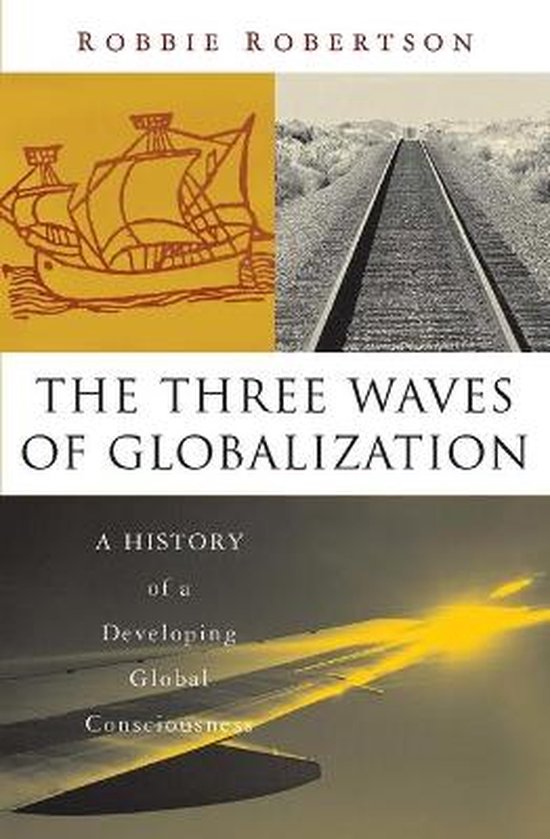
The Three Waves of Globalization
Globalization necessitates a new reading of the human story. Its origins, Robbie Robertson argues here, lie in human interconnections that have existed since the earliest times and which assumed global proportions 500 years ago.
Globalization necessitates a new reading of the human story, argues historian Robbie Robertson in this thought-provoking study. Its origins, he suggests, lie in the interconnections that slowly enveloped humans since the earliest of times. But things changed dramatically 500 years ago when humanity's interconnections assumed global proportions for the first time and produced what the author sees as three consecutive waves of globalization that have radically transformed human societies and their economic activities. Managing these revolutionary changes has proved difficult. Globalization is destabilizing. The first wave after 1500 destroyed over 90 per cent of North and South America's peoples and contributed to war and revolution in Europe. It also generated an industrial revolution that shaped the second wave in the 19th century. But in the ensuing rush to monopolize the wealth and power globalization promised, classes, nations and empires escalated their rivalries. Consequently the second wave also faltered and collapsed into depression and war. Now the same fate could face us again if we ignore the social and historical lessons globalization presents us with. A globalized humanity, says Robertson, has to develop a new consciousness of itself in order to effect global solutions based on an inclusive rather than exclusive reading of history.
Globalization necessitates a new reading of the human story, argues historian Robbie Robertson in this thought-provoking study. Its origins, he suggests, lie in the interconnections that slowly enveloped humans since the earliest of times. But things changed dramatically 500 years ago when humanity's interconnections assumed global proportions for the first time and produced what the author sees as three consecutive waves of globalization that have radically transformed human societies and their economic activities. Managing these revolutionary changes has proved difficult. Globalization is destabilizing. The first wave after 1500 destroyed over 90 per cent of North and South America's peoples and contributed to war and revolution in Europe. It also generated an industrial revolution that shaped the second wave in the 19th century. But in the ensuing rush to monopolize the wealth and power globalization promised, classes, nations and empires escalated their rivalries. Consequently the second wave also faltered and collapsed into depression and war. Now the same fate could face us again if we ignore the social and historical lessons globalization presents us with. A globalized humanity, says Robertson, has to develop a new consciousness of itself in order to effect global solutions based on an inclusive rather than exclusive reading of history.
| Auteur | | Robbie Robertson |
| Taal | | Engels |
| Type | | Paperback |
| Categorie | | Mens & Maatschappij |